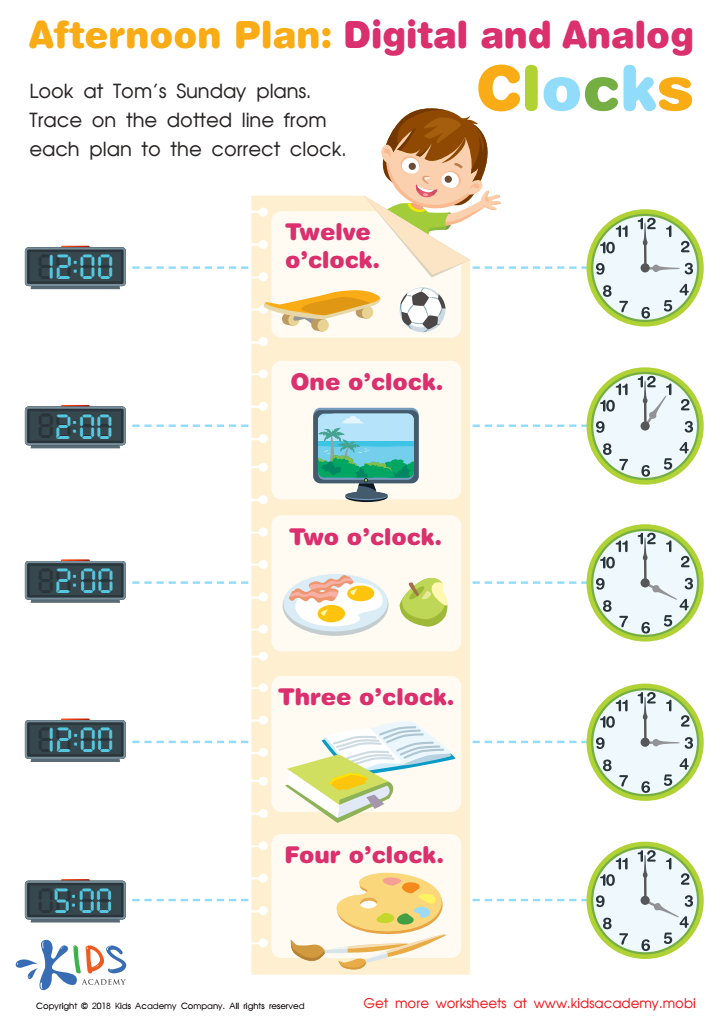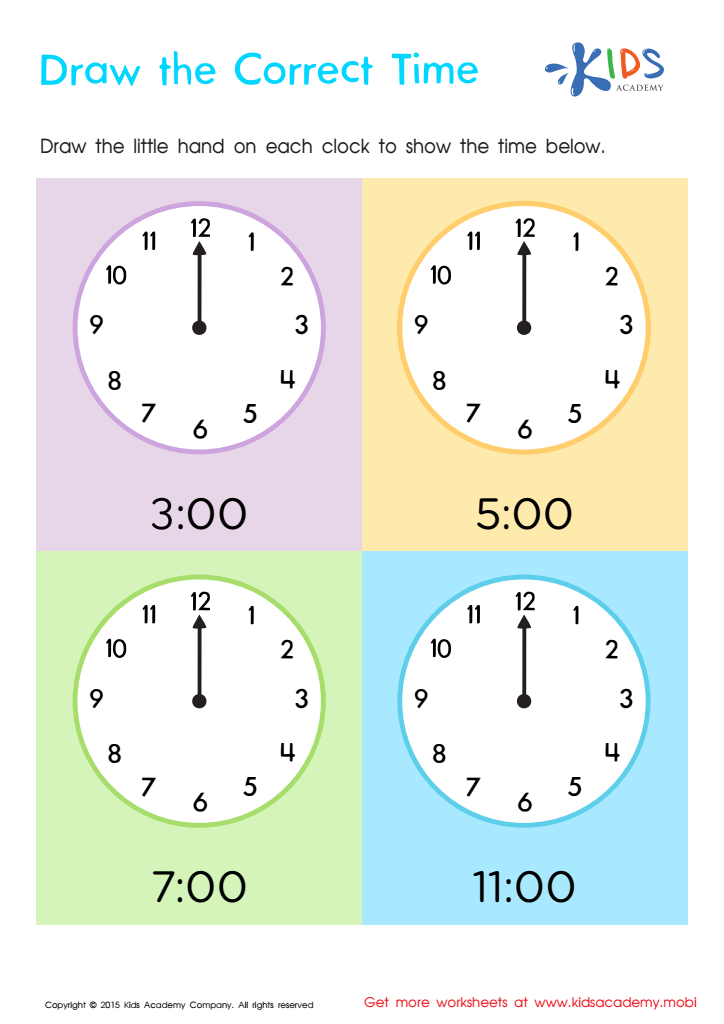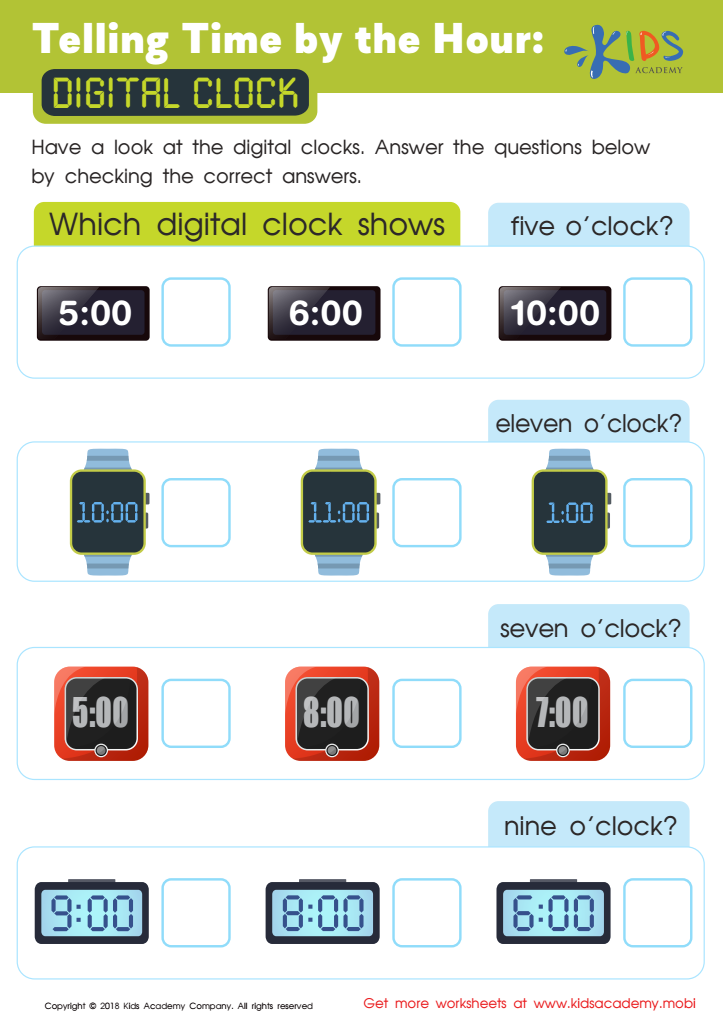Time reading skills Easy Worksheets for Ages 5-6
3 filtered results
-
From - To
Enhance your child’s understanding of time with our engaging Time Reading Skills Easy Worksheets, specially designed for ages 5-6. These worksheets provide vibrant and interactive activities that introduce basic concepts of time, such as recognizing clocks, understanding hours and half-hours, and reading digital formats. By solving fun problems and participating in creative exercises, young learners will develop essential skills that lay the foundation for effective time management. Our easy-to-use format and child-friendly designs make learning enjoyable, ensuring that your little ones grasp important time concepts while having fun. Perfect for home or classroom use, foster a love for learning time with us today!


Afternoon Plan: Digital and Analog Clocks Worksheet


Telling The Time Worksheet: Part 1


Telling Time by the Hour: Digital Clock Worksheet
Reading at an early age, particularly at around ages 5-6, is crucial for a child’s development and future learning. For parents and teachers, nurturing reading skills during this formative period lays the foundation for a child's academic success and lifelong learning.
Firstly, reading helps enhance vocabulary and language comprehension, allowing children to express themselves clearly and understand more complex ideas as they grow. Regular reading cultivates cognitive skills, including attention span and memory, which are essential for learning other subjects.
Moreover, time spent reading together fosters bonding and creates a positive association with learning. Engaging with stories stimulates imagination and creativity, nurturing emotional and social understanding.
Furthermore, strong reading skills can lead to improved academic performance in subjects beyond literacy, such as math and science, where reading comprehension plays a key role in understanding problems and instructions.
Finally, helping children develop reading skills boosts their confidence and independence. It empowers them to explore the world around them and pursue their interests actively. Overall, parents and teachers should prioritize reading as a vital component of early education, supporting children in becoming proficient, confident readers who love to learn.
 Assign to My Students
Assign to My Students
















